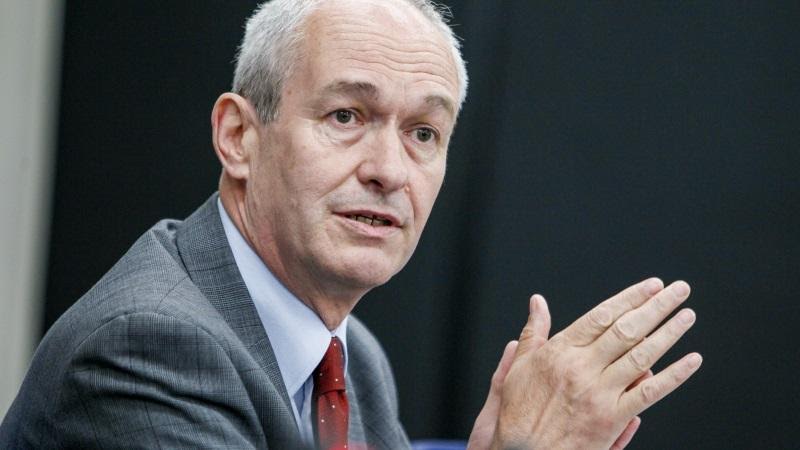
The European election results were not good for Labour, halving our number of seats from 20 to 10 and losing valued colleagues, from the longest-serving MEP (David Martin from Scotland) to one of the most recent (Wajid Khan from the North West). At the outset of the campaign, we were hoping to gain seats. By the end, we were facing the worst Labour result in any nationwide poll since 1918.
Labour haemorrhaged votes mostly to the Greens and the Lib Dems, and to the SNP in Scotland and to Plaid Cymru in Wales, due to perceptions that our commitment to a public vote on any Brexit outcome was half-hearted and because our talks with the government (still ongoing for most of this campaign) were portrayed as bailing out the Tories on Brexit. Those parties attacked us relentlessly on that front and it paid off for them handsomely.
Had Labour wholeheartedly campaigned for a public vote on any Brexit deal we could have had a resounding victory – as we did the last time we faced a divided Tory government in European elections (1994, when we won 62 out of 87 seats). Like then, it could have been a springboard to victory in the next general election. Instead, we risk losing a generation of young voters to the Greens.
And it could have been even worse. On the doorstep (I was in Yorkshire, but my colleagues in every other region experienced the same), our candidates and canvassers were often able to talk around the doubters by drawing attention to the reference to a public vote that was tucked away, albeit with caveats, in our manifesto, and by pointing out that not voting Labour risked handing seats to the far-right. And our MEPs were frequently told: “I’m only voting Labour because you are a candidate”. The argument that these elections also mattered in terms of the balance of political forces across Europe also appealed to party activists. But all this failed to stem the tide.
The immediate reaction to the result saw a shift in emphasis. Jeremy wrote to all MPs the day after the count saying that it is “clear that the deadlock in parliament can now only be broken by the issue going back to the people through a general election or a public vote. We are ready to support a public vote on any deal”.
Jeremy’s prompt response is the right one. It will enable us to have a good chance of winning back those lost votes from the Greens and Lib Dems. It’s also the right thing for the country as we face the prospect of new, even more right-wing, Prime Minister.
Might it risk losing Labour voters who voted Leave at the time of the referendum three years ago? If so, far fewer. Most Labour voters, even in Leave areas, voted Remain. Since the referendum, faced with a palpably right-wing project – a damaging, job destroying, rights-threatening, costly, Brexit fully owned by the Tories – many of them have had doubts and would no longer vote that way. Perhaps only a tenth of Labour voters still support Brexit, and most of them would not abandon Labour on that issue alone in a general election.
That is indeed one of the lessons from the European campaign. Labour lost four times as many votes to the Greens and Lib Dems than it did to the Brexit Party. The Brexit Party takes its votes mostly from former UKIP and BNP voters, and a good proportion of the Tory vote.
Much of the commentary has been about Nigel Farage’s new “party” (in fact, a private limited company with no members, only “supporters” and “donors”) winning the most seats. But a look beyond the headlines shows that Farage fell well short of his target of taking the 2014 UKIP vote + half the 2014 Tory vote + a few from Labour, which would have taken him to nearly 45%. He failed to come anywhere near that.
Indeed, the total number of seats for the Brexit-enthusiastic parties (BXT+CON+UKIP+DUP) is actually ten seats lower than they won in 2014. They’re going backwards. Similarly, the aggregate share of the votes for these parties, at 43.2%, is well down on 2014 (51.5%). And the total vote for parties supporting a public vote of one kind or another on the actual Brexit deal (Lab+LD+Green+SNP+Plaid) is 11% greater than than those opposing it (BXT+CON+UKIP).This confirms that the public mood has shifted against Brexit. It would be folly to proceed with Brexit because it is “the will of the people” when there is every indication that it no longer is. It would at least be worth checking.
A new referendum would be the first referendum on the actual deal, when voters can see black on white what it entails. And it is Leave voters who are most entitled to say that Brexit is turning out to be very different from what was promised by Boris Johnson, Michael Gove, Nigel Farage and others, who said it would be easy, would save money that could go to the NHS, and would help our economy. 2016 Leavers are saying in increasing numbers that the emerging Brexit reality is not what they voted for.
We’ve come to the point where opposing a public vote on the actual Brexit deal is tantamount to saying to the public: “You had your say three years ago, now you must shut up and accept whatever the government comes up with.” That is not democratic. That is not defensible. All of these factors reinforce the argument that Labour must be more vocal and robust in its commitment to a public vote. That is the right thing to do for the country and the party.



More from LabourList
NEC member warns of CLP ‘resentment’ over twinning and cut-off IT access
‘A black hole, CQC woes, prison crisis: Tories get taste of their own medicine’
Labour NEC elections: ‘Councillors must have a voice and be listened to’